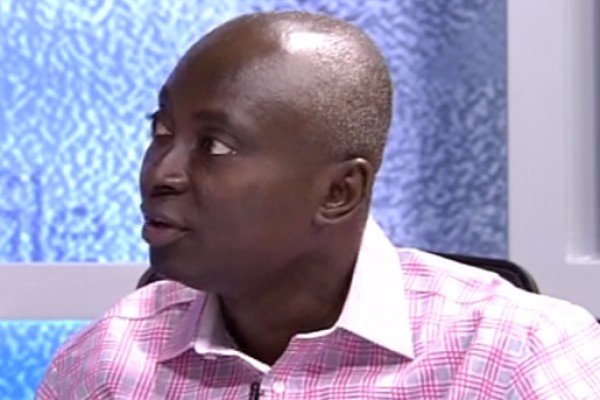Published
4 years agoon
By
Joe Pee
Works and Housing Minister, Samuel Atta-Akyea has revealed that the National Housing Policy Implementation Plan is at its conclusive stage.
He said the policy document had undergone stakeholder consultative assessments and contains strategies that would go a long way to solve the myriad of urban housing problems facing Ghanaians.
“It is therefore, appropriate for us to take stock of our accomplishments and challenges in the areas of the National Housing Policies and Programmes and ensure that our vision is properly understood by all, and effectively implemented, to urgently address the crucial aspect of housing affordability,” Mr Atta-Akyea stated in his address on Monday to mark World Habitat Day Celebration in Accra.
The celebration, which was held virtually on the theme: “Housing for All: A Better Urban Future”, was organised by the Ministry of Works and Housing in collaboration with the UN-Habitat, Ministry of Local Government and Rural Development, Ministry of Sanitation and Water Resources, Ministry of Environment, Science, Technology and Innovation, and Ministry of Inner City and Zongo Development.
World Habitat Day is marked on the first Monday of October each year, and is recognized by the UN to reflect on the state of towns and cities, and on the basic right of all to adequate shelter.
Mr Atta-Akyea said Government was adopting a two-pronged approach to mobilise funds both domestically and internationally, to support the housing sector.
He said Government, through the Ministry of Works and Housing, was implementing the Ghana Affordable Housing Programme, aimed at providing adequate, decent affordable housing, particularly to low and middle-income groups.
“Government is committed to achieving our targets of the Sustainable Development Goals (SDGs). Ghana believes that the effective implementation of the 17 SDGs remains critical to making the multilateral system relevant in addressing the global challenges we face,” Mr Atta-Akyea said. “Indeed, one such challenge is the threat to the consolidation to achieve SDG 11: Inclusive, safe, resilient and sustainable cities”.
He said there was the need for them to focus attention on the 2030 UN SDGs, especially as they mark the beginning of the Decade of Action to deliver the goals and targets of Agenda 2030.
He said affordable homes created a big challenge not only to the Housing Ministry, but also to all collaborating Ministries, the business community and civil society.
He said addressing the house needs of the poorest and most vulnerable, especially women, youth and those who live in slums must be a priority in the development agenda of the nation.
Mr Charles Abani, the UN Resident Coordinator in Ghana, said housing was a fundamental human right and that the Covid-19 pandemic had shown that cities, local and national governments around the world could move towards reducing inequalities and poverty levels and providing access to adequate housing for all, as a catalyst to achieve other fundamental rights; declaring that “this is central in our battle against the Covid-19 VIRUS.
Professor Kwabena Frimpong-Boateng, Minister of Environment, Science, Technology and Innovation, advocated that as the nation strives to address the housing deficits, room must be created for farmlands, recreational areas and flood plains.
Madam Cecilia Dapaah, Minister of Sanitation and Water Resources, who gave an overview of measures taken by her Ministry as part of efforts to contain the outbreak of the Covid-19 pandemic in the country said to eradicate the Covid-19 virus, there was the need for stakeholders to bring together resources and enhance synergies; stating that Government would not relent in its efforts to contain the spread of the virus.
Mr Kwasi Boateng Adjei, a Deputy Minister of Local Government and Rural Development, who outlined activities undertaken by his Ministry as part of measures to contain the Covid-19 pandemic – disinfection of public places like markets and lorry stations; adding that a total of 1,800 markets were disinfected.
He urged Ghanaians to continue observing the Covid-19 protocols such as the washing of hands with soap under running water and the use of mask, as part of measures to contain the virus.


Dozens of children killed in crush at Nigerian Christmas funfair


President-elect Mahama Calls for Urgent Overhaul of Ghana’s Energy Sector Amid Economic Concerns


Ghana Secures $316 Million in FDI for First Three Quarters of 2024


CAF President Dr Motsepe begins two-day tour of CHAN 2025 Host Nations in Tanzania on Thursday


Electoral Commission Calls for Unity Amid Controversies Over Parliamentary Results


Parents Held Accountable as Teen Driver Sentenced in Fatal East Legon Accident


Suspect Arrested for Vandalism at Parliament


Supreme Court Upholds Legislative Autonomy in Human Sexual Rights Bill Case


Petition Targets Chief Justice Torkornoo Over Alleged Administrative Overreach

























